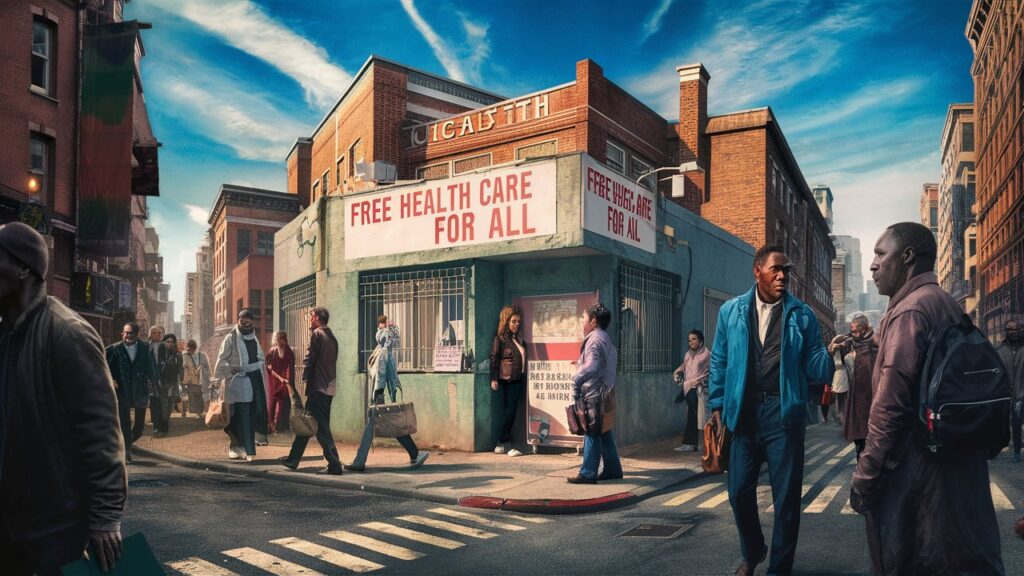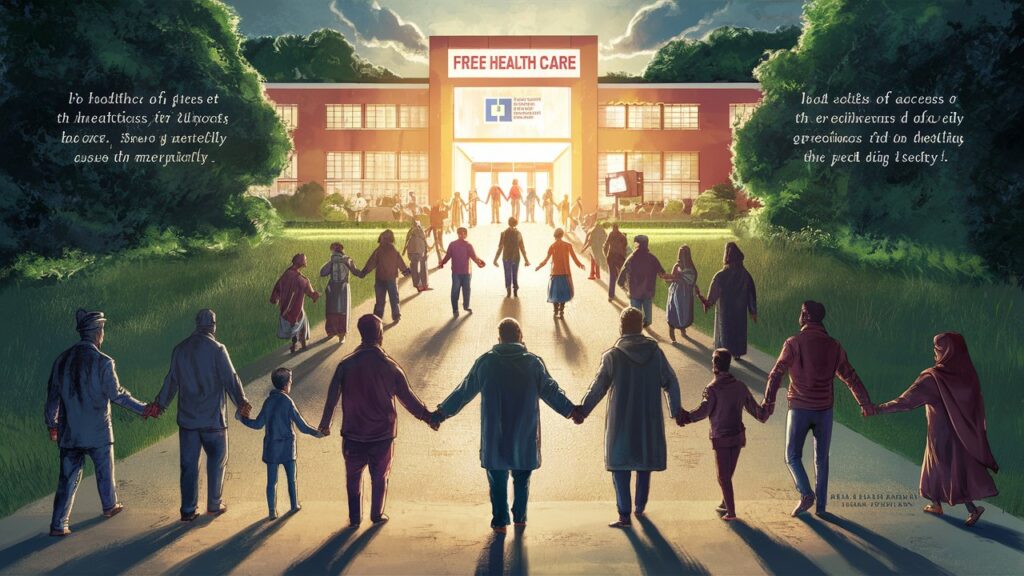Definition of Health Care
Health care encompasses a wide range of services aimed at improving and maintaining physical and mental health. These services include preventive care, diagnosis, treatment, and management of illnesses and injuries, delivered by a variety of healthcare professionals.

Relevance and Importance
The debate over whether health care should be free is ongoing and highly relevant, as it impacts millions of lives globally. Access to affordable health care is crucial for the well-being of individuals and the overall health of a society. Ensuring that health care is free can address inequalities and improve public health outcomes.
Historical Context
Evolution of Health Care Systems
Historically, health care systems have evolved significantly. Ancient civilizations had rudimentary health care practices, while the Middle Ages saw the rise of hospitals. The 20th century brought major advancements with the establishment of universal health care in some countries.
Key Milestones
- The establishment of the National Health Service (NHS) in the UK in 1948.
- The introduction of Medicare and Medicaid in the US in 1965.
- The global recognition of health care as a human right by the World Health Organization (WHO) in 1948.
Types of Health Care Systems
Public Health Care Systems
These systems are funded and managed by the government. Examples include the NHS in the UK and Medicare in Australia. Public health care aims to provide comprehensive services to all citizens regardless of their ability to pay.
Private Health Care Systems
In private systems, health care services are provided by private entities and funded through out-of-pocket payments, private insurance, or employer-sponsored insurance. Examples include the health care system in the US.
Mixed Health Care Systems
Many countries have mixed systems, combining elements of both public and private health care to provide more comprehensive coverage. Examples include Canada and France.
Benefits of Free Health Care
Improved Public Health
Access to free health care can lead to better health outcomes, as individuals are more likely to seek preventive care and early treatment for illnesses.
Economic Advantages
Free health care can reduce the financial burden on individuals and families, leading to a healthier workforce and potentially boosting economic productivity.
Social Equity
Ensuring that health care is free can address health disparities and promote social justice by providing equal access to medical services for all citizens.
Challenges and Criticisms
Funding and Sustainability
One of the primary challenges of free health care is funding. Governments need to find sustainable ways to finance these systems without compromising quality.
Potential for Overuse
Free health care might lead to overuse or misuse of medical services, increasing the strain on health care providers and resources.
Quality of Care
Maintaining high-quality care while providing services for free can be challenging. It requires effective management and adequate funding.
Common Misconceptions
Free Health Care Equals Poor Quality
A common misconception is that free health care leads to poor quality services. However, many countries with free health care systems, such as those in Scandinavia, provide high-quality care.
It’s Too Expensive
While funding free health care is costly, the long-term economic benefits and improved public health outcomes can outweigh the initial expenses.

Real-Life Case Studies
United Kingdom’s NHS
The NHS provides comprehensive health care to all residents, funded through taxation. It has significantly improved public health outcomes in the UK.
Canada’s Health Care System
Canada offers a publicly funded health care system that ensures access to necessary medical services for all residents, leading to high satisfaction rates and better health indicators.
Cuba’s Health Care System
Despite limited resources, Cuba’s health care system is lauded for its efficiency and excellent public health outcomes, primarily due to its emphasis on preventive care.
Expert Insights
Quotes from Health Professionals
- “Free health care can bridge the gap between the rich and the poor, ensuring everyone has access to essential services.” – Dr. Jane Smith, Public Health Expert
- “The economic benefits of a healthy population cannot be overstated. Free health care is an investment in our future.” – Dr. John Doe, Health Economist
Conclusion
Summary of Key Points
Free health care has numerous benefits, including improved public health, economic advantages, and social equity. While there are challenges to its implementation, the overall positive impact on society makes a compelling case for making health care accessible to all.
Call to Action
Governments, policymakers, and citizens must work together to explore sustainable models for free health care, ensuring that everyone has access to the medical services they need.
